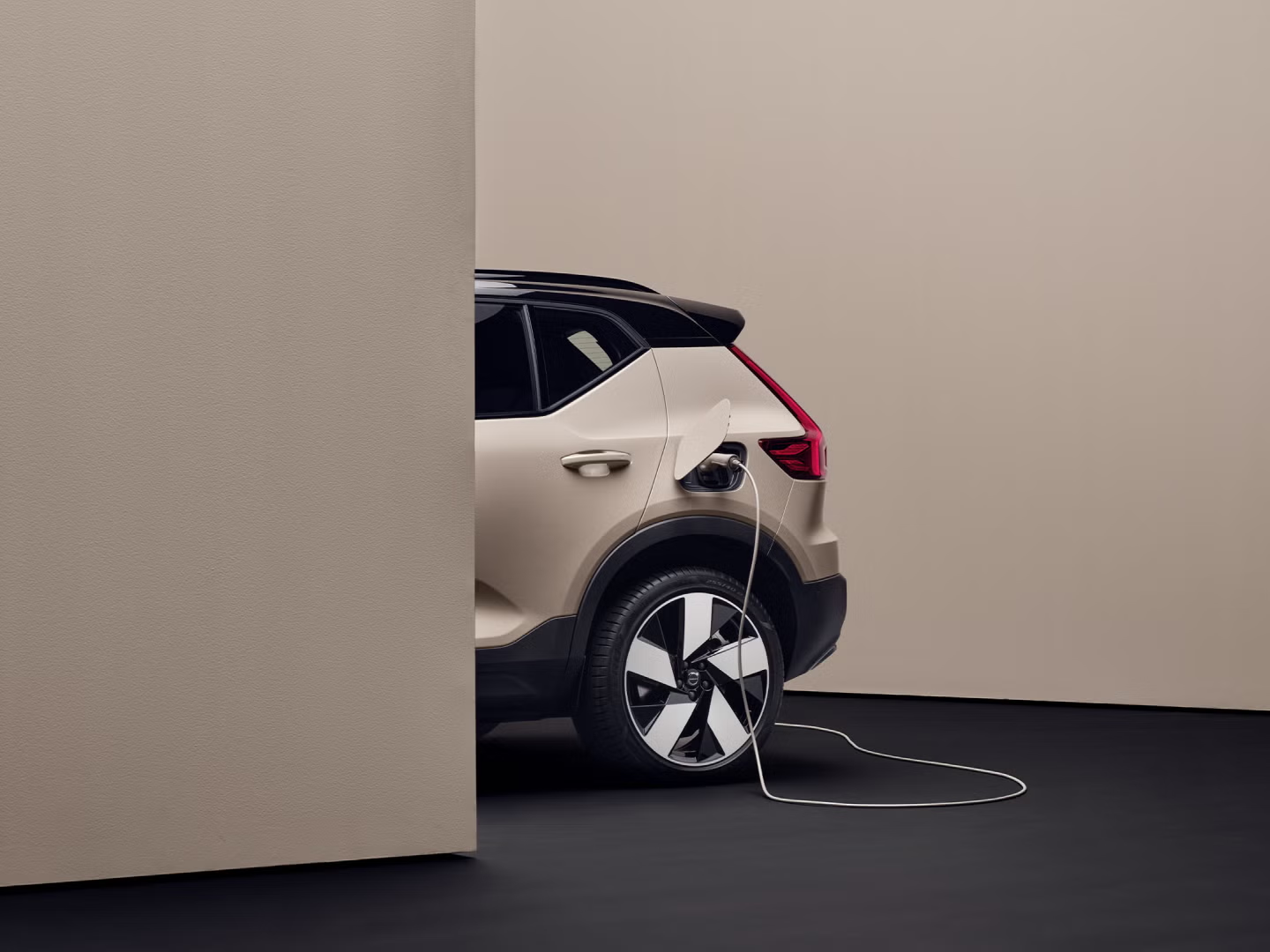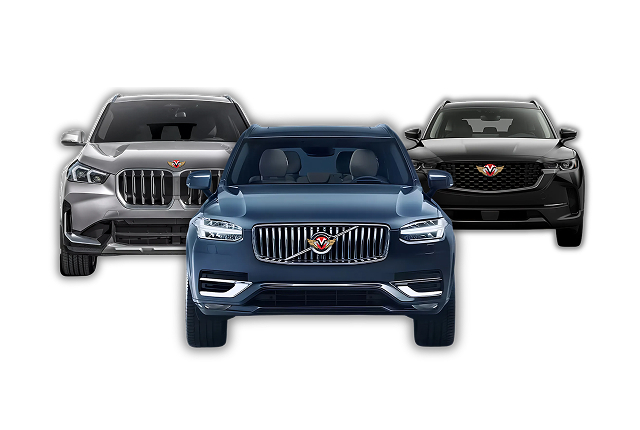Business Owners: Big Tax Breaks on 6,000+ lb Cars
Here’s the Dad-Approved Math
Ready to make your business ride as savvy (sexy, sassy) as you are? If you’re eyeing a luxury SUV that’s as smart on tax breaks as it is on style, listen up: Buying a SUV through your business before 2025 ends could unlock a jaw-dropping first-year tax deduction of up to $48,780. You read that right. Your Car-Smart Dad is here to give you a lesson on how the tax code works in your favor—and how to drive off with more cash in your pocket.

Heavy SUVs Mean Heavy Deductions
Many luxury SUVs tip the scale with a Gross Vehicle Weight Rating (GVWR) over 6,000 pounds. That makes them qualify as “heavy” SUVs—the golden ticket for those juicy Section 179 and bonus depreciation tax perks for 2025. Translation? Uncle Sam basically shares the cost of your new ride when it’s a business asset.
The Tax Magic: How You Get Up to $48,780 Back
Here’s the quick math for 2025:
- Section 179 Deduction: Up to $31,300 right off the bat
- Bonus Depreciation: An additional 40% off the remaining price
Stack these, and your first-year write-off on a luxury SUV could approach $48,780. That’s serious cash fueling your business growth.
The Rules of the Road (aka Eligibility)
Before you pop the champagne, here’s what you gotta know:
- Buy and put that Range Rover into service before Dec 31, 2025.
- Use it for business more than 50% of the time.
- You must own or finance it in your company’s name—leases don’t count here.
- If you’re financing, the loan needs to be in the business name.
Fail those tests, and the deductions vanish faster than a weekend snowstorm.
Show Me the Money (example only*)
Grab a Range Rover priced at $75,000, wholly used for business this year. Your deduction breaks down like this:
- Section 179 deduction: $31,300
- Remaining $43,700 gets a 40% bonus depreciation = $17,480
- Total first-year write-off: $31,300 + $17,480 = $48,780
Ka-ching! That’s nearly $50k off your taxable income before you even hit the pedal.
Keep These Pit Stops in Mind
- Use it less? The deduction shrinks. Run 80% business? Deduct 80% of the eligible amount. Below 50%, no dice.
- Changed your mind later and switch to personal use? Be prepared for depreciation recapture—that’s Uncle Sam asking for some of that tax break back.
- Bonus depreciation perks are sliding down in future years—these deals won’t last, so 2025 is your sweet spot.
The Car-Smart Dad Wrap-Up:
Want the best of both worlds? Drive luxury and keep your CFO smiling? Buying a Luxury SUV for your business this year isn’t just smart—it’s savvy strategy meets style. Just remember: tax laws can be tricky, so tag in your tax pro for tailored advice.*
At The Vantage Auto Group, we do all the work—finding you the right car, negotiating pricing, and making sure you get the best fit for your business goals (with zero dealership drama).
Ready to get into that new business ride? Dad’s got you covered!
Here are several luxury SUVs other than Range Rovers with a Gross Vehicle Weight Rating (GVWR) over 6,000 pounds as of 2025, making them eligible for similar business tax deductions:
- Audi Q7 and SQ7 (around 6,900 lbs)
- Audi Q8 and SQ8 (around 6,900 lbs)
- BMW X5 xDrive45e (7,165 lbs)
- BMW X6 M50i (6,063 lbs)
- BMW X7 (6,300 to 7,000+ lbs depending on trim)
- Bentley Bentayga (about 7,165 to 7,275 lbs)
- Cadillac Escalade and Escalade ESV (7,100 to 7,300 lbs)
- Lexus LX 600 and LX 700h (over 7,200 lbs)
- Lincoln Navigator (7,200+ lbs)
- Mercedes-Benz GLS 580 and AMG GLS 600 (around 6,768 lbs)
- Mercedes-Benz G 550 4×4 Squared (7,057 lbs)
- Porsche Cayenne Turbo (around 6,173 lbs)
- Tesla Model X (just over 6,000 lbs)
- Jeep Grand Wagoneer (7,400 to 7,800 lbs)
- Infiniti QX80 (about 7,385 lbs)
- Land Rover Defender and Discovery models (over 6,700 lbs depending on trim)
*This information is not intended to be tax advice. Please consult with your tax professional to see how this would work in your situation before buying.
Heavier Vehicles, Heavier Write‑Offs: The 14,000+ lb Power Play*
Now, let’s talk about the heavy hitters — and by heavy, we mean over 14,000 pounds. Think commercial vans, shuttle buses, delivery rigs, and those diesel beasts that make your accountant’s eyes light up. These aren’t your regular SUVs — they’re tax-writing machines on wheels.
Here’s the dad-approved math: when a vehicle tips the scale past 14,000 lbs GVWR, it usually qualifies for a 100% first-year deduction under Section 179 or bonus depreciation. Yep, that’s right — the entire purchase price can potentially be written off in the first year it hits the road for business. No waiting, no drawn-out depreciation. Just instant savings.
Why so generous? Uncle Sam loves investment in business infrastructure. These heavy-duty vehicles are built for work — not weekend Target runs. When you buy one primarily for business use (over 50% of the time), and put it in service before the end of 2025, you could wipe out the full cost in year one.
Here’s how the math drives out:
- Section 179 lets you expense 100% of the cost on vehicles over 14,000 lbs GVWR.
- Bonus depreciation can stack on top if Section 179 doesn’t fully cover it.
- Use it 80% for business? Deduct 80%. Use it half for work, half for play? Sorry, you’re out of luck.
- Dad’s Takeaway:
If 6,000-lb SUVs are the smart hack for tax-savvy business owners, then 14,000+ lb vehicles are the boss-level move. You’re not just saving money — you’re powering your business with the government’s blessing (and their checkbook). Just make sure it’s titled to your company, used primarily for business, and your CPA nods before you roll off the lot.
Examples of these tax-titan vehicles include:
Ambulances, delivery vans with extended cargo, shuttle buses with 9+ seats, semi-trucks, and commercial chassis trucks designed for true work duty.
*This information is not intended to be tax advice. Please consult with your tax professional to see how this would work in your situation before buying.
Speak to a Car-Smart Dad to get all the deets.
Not into the Heavyweights?
You can still score a deal with the 179 tax break.
Light Vehicles, Lighter Deductions
Yep, your everyday sedan or crossover can still earn you a tax break—but it’s not the same sweet deal as those heavier, full‑bodied SUVs. For 2025, the maximum first‑year deduction for light vehicles (those with a Gross Vehicle Weight Rating, or GVWR, of 6,000 lbs or less) tops out at $12,200 .
So yes, that sleek business sedan might still bring some tax relief, but think of it as the leaner cousin in the deduction family.
How the Light‑Vehicle Deduction Works
To claim the write‑off, you’ve got to follow a few simple (but important) rules:
- Use it for business more than 50% of the time. No fudging those miles—Uncle Sam likes receipts.
- Put it in service in 2025. Buy or finance your car and start using it for business before December 31 to qualify.
- Combine depreciation methods. After your Section 179 bump, you can also snag an $8,000 bonus depreciation in 2025, bringing your total potential first‑year deduction to $20,200 .
Dad‑Approved Example
Let’s break down the math like a true Car‑Smart Dad:
You buy a shiny $35,000 passenger car (under 6,000 lbs GVWR) and drive it 100% for business in 2025.
- Take your $12,200 Section 179 deduction.
- You’ve got $22,800 left ($35,000 − $12,200).
- Then apply that $8,000 bonus depreciation.
Result? $20,200 total first‑year write‑off—not too shabby for something that still fits in your garage .
Pit Stops to Remember
Before you gun it to the dealership, keep these items in your rear‑view mirror:
- Record everything. Keep a detailed mileage log showing at least 50% business use—just in case Uncle Sam comes knocking.
- Bonus depreciation is shrinking. It slides to 20% in 2026 and vanishes entirely in 2027 .
- Call your tax pro. Every case has nuances, and your CPA is the co‑pilot who keeps you compliant.
Bottom line: Light vehicles deliver lighter deductions—but when used right, they still put real money back in your business’s tank.
Explore The Cars From This Article
Explore The Cars From This Article
Read Further

There’s nothing quite like the thrill of a sports car—the grip of the tires, the roar of the engine, the pulse-pounding acceleration. At Vantage Auto Group, we believe everyone deserves a chance to experience that. Our Sports Car Lease Deals are designed to turn high-performance dreams into real-world driving adventures, all at a price that makes sense.

Shopping for your next car doesn’t have to mean spending weekends hopping from dealership to dealership. With online car shopping, you can browse, compare, and buy the perfect vehicle—all from the comfort of your couch. At Vantage Auto Group, we’ve built a modern platform that brings the entire car leasing experience online, combining convenience, transparency, and total control.

Looking to lease a new car without the hefty upfront cost? Vantage Auto Group is redefining the leasing experience with its no money down car lease—a smart, stress-free way to drive the car you want without draining your savings. Here’s why this approach is quickly becoming the go-to option for budget-conscious drivers across the country.

Hybrid cars offer a mix of gas and electric benefits. Fully electric vehicles eliminate fuel costs but require charging infrastructure. Range anxiety and charging availability still influence buyer decisions. Government incentives can make full EVs more appealing. Compare hybrids and EVs to find your best match.

Government incentives can lower the cost of switching to an EV. Federal tax credits vary by manufacturer and model. State-level incentives can provide additional savings. Knowing how to apply for these credits can save you thousands. Find out how much you can save when buying an EV.
Testimonials
Vantage Customer Reviews
At Vantage Auto Group we take great pride in providing our customers with the best car leasing experience. We are proud to have to such incredible reviews!


































